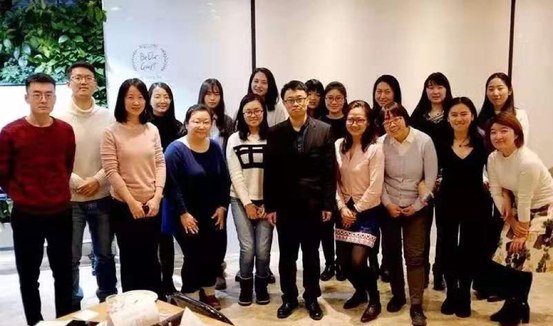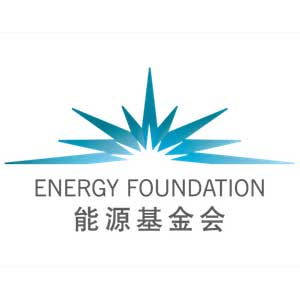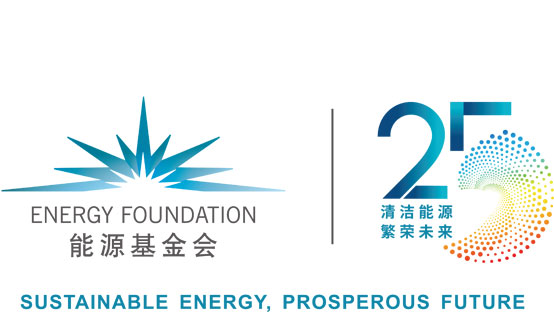The Story of Our Experiences
“Stories give shape to experience and allow us to go through life unblind. Without them, the stuff that happens would float around in some glob and none of it would mean anything. Once you have a version of what happened, all the other good stuff about being human can come into play. You can laugh, feel awe, commit a compassionate act, get pissed, and want to change things.”
—Alex Tizon, a Pulitzer Prize-winning journalist.

“I’m in total agreement with these words from Mr. Tizon. Good communications can give people an excellent understanding of your story and win over their heart and mind. It can also give birth to an enthusiasm for change. Climate change is becoming the underlying theme for all the important issues in the world. Therefore it is an exciting challenge to tell a good story of climate change and low-carbon transformation, in order to cultivate ambition and encourage action for saving humanity in the face of climate calamity,” said Jing Hui, Director of Strategic Communications at Energy Foundation China.
The foundation’s strategic communications program was established in 2015. “While the other teams of EF China provide analysis and education by sponsoring research and pilot projects, our job is to tell the story of energy transformation in a way that helps relevant parties make informed choices,” said Ms. Jing. After four years of hard work by her team, their efforts are now beginning to bear fruits in the areas of issue promotion, awareness heightening, and behavior changes among the public at large with regard to low-carbon transformation.
Getting the Issue of Diesel Pollution Taken Seriously
When China launched the three-year National Plan on Defending Blue Sky in 2018, diesel trucks were listed as one of the most important areas in need of clean-up. Barely two to three years ago, there was still little public interest in air pollution caused by diesel emissions, while industry experts knew full well that diesel vehicles, which accounted for only 6.4 percent of all motor vehicles, emitted 63.6 percent of nitrogen oxides and 99 percent of particulate matter in China. Back then, the key question for the strategic communications team was how they could attract more attention to and raise the priority level of this matter among stakeholders.
In 2016, in order to bring this topic to public attention, EF China provided support to the Asian Clean Air Center over their research in areas such as the Beijing-Tianjin-Hebei region where there was heavy pollution from diesel vehicles and ships. The center focused on issues such as a lack of supervision, poor fuel quality, and serious pollution for ports in its report Facts on China’s Diesel Pollution. At the press conference for its release, experts impressed upon the journalists present the seriousness of diesel pollution and an urgent need for control. In just over 10 days, the number of related news articles exceeded 200. Many readers expressed strong concern about pollution by diesel vehicles. This wave of reporting effectively made diesel pollution a key topic in the area of air pollution control.

In order to promote discussions on a wider scale, EF China provided support to the public advocacy campaign Clean Up the Black Tail. Project partners placed advertisements on diesel vehicle hazards at eight subway stations in Beijing and encouraged people to participate in the supervision of polluting vehicles by calling hotline 12369. The project also helped set up the #CleanBlackTail social media topic for discussion. Within four months, the topic trended, with pageviews as high as 1.34 million, number of posts over 90,000, and a short video on diesel pollution played for over 1.1 million times. The project also teamed up with Tencent.com, one the biggest internet conglomerates in China, to roll out photo essays on diesel pollution, with pageviews reaching 200,000 in one month and receiving more than 1,000 comments. It is credited with educating the masses of serious pollution and harm effects associated with diesel.
As public concerns continued to mount, focuses quickly shifted to finding a solution. Since September 2017, Energy Foundation China has provided support to a thorough investigation of China’s freight industry, examining all the problems of the industry—which mainly relies on diesel vehicles—and interviewing industry experts for answers. In March 2018, the first Chinese Freight Industry Sustainability Survey was published. It analyzed solutions with regards to environmental protection, energy conservation, efficiency, safety, and costs. The report was subsequently featured by more than 30 media outlets. #SustainableFreight related topics on Weibo— China’s Twitter-like service—were read 2.15 million times, creating a new wave of discussions on finding solutions for diesel pollution.

This issue has since received significant attention from top Chinese leaders and become an important part of the three-year National Plan on Defending Blue Sky. In 2018, China identified control for diesel trucks as one of the seven landmark campaigns in its war on pollution and in January 2019, issued the National Action Plan for the Pollution Control of Diesel Trucks. It proposes that by 2020, the sight of black smoke emitted by diesel trucks in the country would be basically eliminated. In April, the city of Beijing introduced a local diesel vehicle action plan to ensure the pollution is quickly brought under control.
“The promotion of a policy can greatly benefit from improved priority status of related topics in public discourse and changes of perceptions and attitudes from various stakeholders, in addition to relying on research and pilot projects,” Ms. Jing said. “Smart communications over the topic of diesel pollution control leads to enhanced visibility, effectively building a platform for all parties involved to discuss matter at hand and eventually reach a consensus on the issue.”
Empowering the Field
One of the directions that EF China is working toward is to bring best practices and effective tools of public communications into the field, helping everyone improve their capabilities in the area and tell a good story of climate governance and energy revolution.
In 2017, EF China launched a capacity building program to provide experience sharing and training opportunities in the form of workshops for communication personnel from various organizations. Recognizing the different goals of each organization and their disparate requirements for communication capabilities, EF China developed a tailor-made strategic communication course on climate and energy issues after three months of detailed research, a first in the country. The workshop has been successfully held twice, providing training for nearly 30 organizations in the field.

Many participants have gained a deep understanding on how to conduct effective public and stakeholder communications concerning climate and energy issues. However, most organizations have limited funding for communications work. For them, it is difficult to put good ideas into practice, thus limiting innovation in this area. In July 2019, EF China launched a “Small Grants” project for strategic communications to support small-scale and effective communication activities, providing opportunities for innovative climate stories with the previously neglected perspective.
In the meanwhile, EF China has also provided compacity building to government campaign personnel in charge of environmental and climate issues. It has helped them explore and share how to effectively marshal public support and participation in pollution control campaigns. Within two years, more than 170 such personnel from Yunnan, Shandong, Henan, and Hebei provinces participated.
Changing Public Behavior
When it comes to solving environmental problems and responding to climate change, public support and participation is a key. Good communications can greatly enhance the public’s awareness and lead to a transformation of their behavior. This area has gradually become a focus of EF China’s strategic communications work.
In order to address the problem of disaggregated coal burning, China introduced a series of clean heating policies. However, villagers in many regions resisted them. This is due to various reasons, such as unfamiliarity toward the policies, difficulty in changing old habits, economic constraints, and a lack of supporting infrastructure.

In 2017, EF China helped the Center for Environmental Education and Communications, a research institution supervised by the Ministry of Ecology and Environment, carry out a communications project for the management of disaggregated coal in China’s rural areas, emphasizing the necessity to work on the basis of the target audience’s perceptions and needs. The project released a report titled Coal-burning Management Report for Beijing-Tianjin-Hebei, which analyzed people’s concerns about cost, efficacy, and maintenance of alternative solutions, before examining the current policies, institutional mechanisms, markets, and public communication efforts concerning clean heating. It came up with a tailor-made communication tool kit for rural disaggregated coal pollution control, providing useful guidance for grassroots communication work. From 2018 to 2019, EF China provided support to the center over their pilot program on the communication tool kit in rural Hebei. Based on the preferences and actual needs of local audience, it designed verses, slogans, and TikTok videos covering policies, prices, safety, and maintenance, successfully enhancing understanding and boosting confidence among the local population.
“This project has provided us with a new way to work on public communications and public behavior guidance concerning air pollution control. Communications work needs to be based on the target audience’s actual needs for work and living, and in keeping with their culture and traditions. Only then, can we ensure that our message will touch their hearts, which in turn leads to changes on the ground. EF China has brought in international experience and fresh thinking on strategic communications to provide valuable support for research and pilot programs of the project,” said Jia Feng, Director of the Center for Environmental Education and Communications.
Beginning in 2018, EF China began to focus on the issue of decarbonization of the consumer sector. Domestic consumption has been the most significant driving force for China’s economic growth for five consecutive years, with demand for resources and energy growing strongly. Studies show, GHG emissions related to residential consumption now account for 52 percent of the total emissions in the country. In order to achieve China’s carbon peak targets, decarbonization in the consumer sector is absolutely imperative. On its intervention of low-carbon consumption by communications project, EF China will work with partners, businesses, communities, media organizations, and other stakeholders to promote the low-carbon consumption concept and behavior change of the Chinese public.

“We look forward to continually exploring all skills and tools related to communicating climate and low-carbon issues, helping one other to understand problems at hand and build a green, low-carbon, and prosperous future with strong ambition,” Ms. Jing said.



